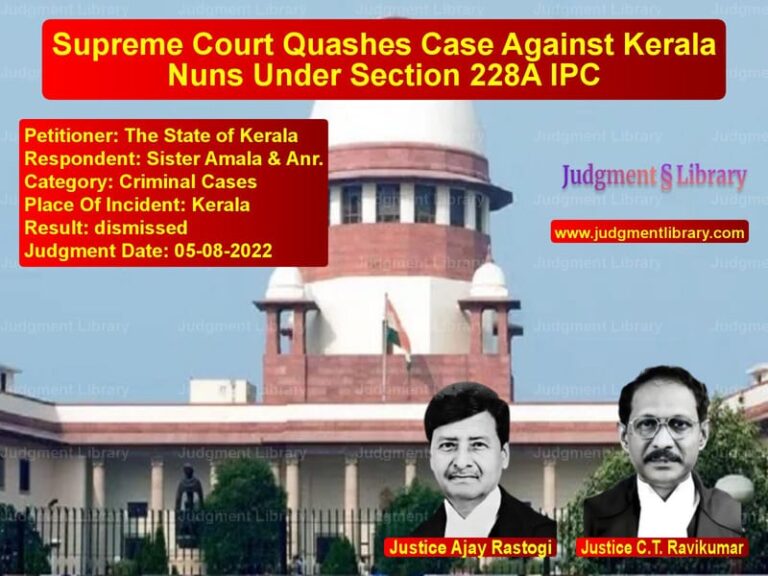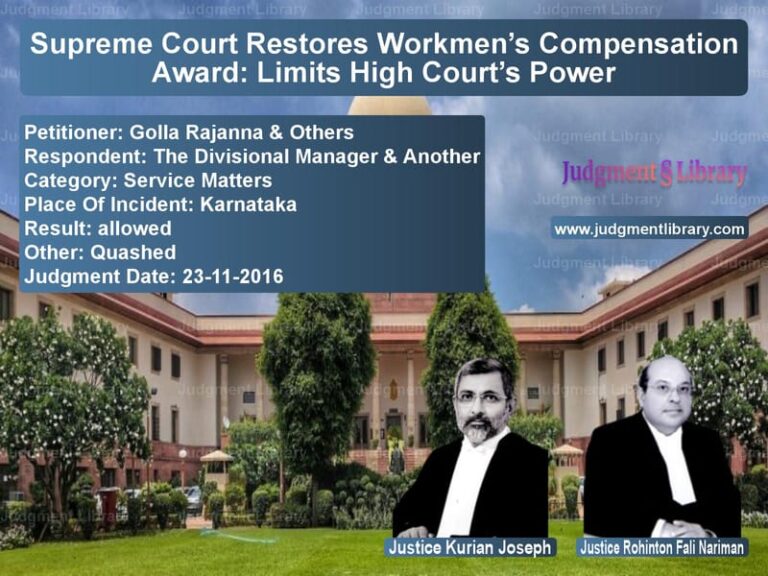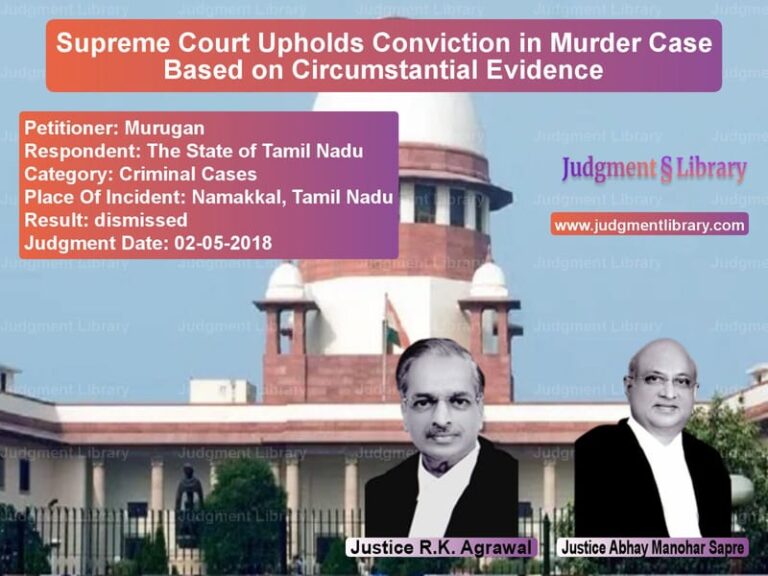Landmark Judgment: Supreme Court Allows Unmarried Woman to Terminate 24-Week Pregnancy
The case of X vs. The Principal Secretary, Health and Family Welfare Department & Anr. has set an important precedent in India regarding reproductive rights and access to medical termination of pregnancy. The Supreme Court’s decision, delivered by a bench comprising Dr. Dhananjaya Y Chandrachud, Surya Kant, and A.S. Bopanna, allowed an unmarried woman to terminate her 24-week pregnancy. This ruling highlights the evolving interpretation of the Medical Termination of Pregnancy Act, 1971 (MTP Act) and its application to unmarried women.
Background of the Case
The petitioner, an unmarried woman residing in Delhi, discovered she was pregnant in June 2022. She had been in a consensual relationship, but after her partner abandoned her, she decided to terminate the pregnancy. On July 5, 2022, an ultrasound confirmed a 22-week pregnancy. The petitioner was financially unstable, had no source of livelihood, and was the eldest among five siblings, making it difficult for her to raise a child.
Read also: https://judgmentlibrary.com/supreme-court-declines-transfer-of-bonus-amendment-cases-to-one-court/
She initially approached the Delhi High Court seeking permission to terminate the pregnancy, but the court issued notice only regarding her request for unmarried women to be included in Rule 3B of the Medical Termination of Pregnancy Rules, 2003 (MTP Rules). The High Court did not grant her immediate relief, prompting her to file a Special Leave Petition before the Supreme Court.
Legal Issues Raised
- Can an unmarried woman seek medical termination of pregnancy beyond 20 weeks under Section 3(2)(b) of the MTP Act?
- Is Rule 3B of the MTP Rules unconstitutional for excluding unmarried women?
- Does forcing a woman to carry an unwanted pregnancy violate her fundamental rights under Article 21?
Petitioner’s Arguments
- The petitioner argued that the distinction between married and unmarried women in Rule 3B was arbitrary and violated Article 14 of the Constitution.
- She had no financial means to raise a child, and carrying an unwanted pregnancy would cause mental trauma, which should be recognized as a valid reason for termination under the law.
- Her right to bodily autonomy and reproductive choice was protected under Article 21.
- By denying unmarried women the right to terminate a pregnancy, the law imposed discriminatory restrictions not applied to married women.
Respondents’ Arguments
- The government contended that Rule 3B of the MTP Rules limited access to termination beyond 20 weeks only to specific categories of women.
- The MTP Act was not meant to allow abortions for all unmarried women in consensual relationships.
- The case should be decided through legislative amendment, rather than judicial interpretation.
Supreme Court’s Observations
The Supreme Court made critical observations on the interpretation of the MTP Act:
- The Delhi High Court had taken an unduly restrictive view in interpreting Rule 3B.
- The phrase “change of marital status” in Rule 3B should be interpreted in a purposive manner.
- The distinction between married and unmarried women was unjustified under Article 14.
- Reproductive choice is an integral part of personal liberty under Article 21.
The Court ruled:
“Denying an unmarried woman the right to a safe abortion violates her personal autonomy and freedom. The criminal law should not be weaponized to interfere with the domain of personal autonomy.”
Final Judgment
The Supreme Court issued the following directives:
- Directed AIIMS Delhi to constitute a Medical Board to assess the feasibility of terminating the pregnancy.
- If the Medical Board found no risk to the petitioner’s life, AIIMS was ordered to perform the abortion.
- The government was restrained from taking any coercive action against doctors performing the procedure.
- The delay in judicial proceedings should not prejudice the petitioner’s right to terminate her pregnancy.
Legal Implications of the Judgment
This ruling has far-reaching implications for reproductive rights in India:
- It ensures that unmarried women can seek medical termination of pregnancy beyond 20 weeks.
- The Court emphasized that reproductive rights are part of personal liberty and bodily autonomy.
- It recognized that unwanted pregnancies cause mental trauma and should be a valid ground for abortion.
- The ruling paves the way for future legal reforms in abortion laws for unmarried women.
This judgment marks a significant victory for women’s rights in India and reinforces the need for legal frameworks that prioritize individual choice over restrictive interpretations of law.
Petitioner Name: X.Respondent Name: The Principal Secretary, Health and Family Welfare Department & Anr..Judgment By: Justice Dhananjaya Y Chandrachud, Justice Surya Kant, Justice A S Bopanna.Place Of Incident: Delhi.Judgment Date: 20-07-2022.
Don’t miss out on the full details! Download the complete judgment in PDF format below and gain valuable insights instantly!
Download Judgment: x-vs-the-principal-secret-supreme-court-of-india-judgment-dated-20-07-2022.pdf
Directly Download Judgment: Directly download this Judgment
See all petitions in Fundamental Rights
See all petitions in Public Interest Litigation
See all petitions in Judgment by Dhananjaya Y Chandrachud
See all petitions in Judgment by Surya Kant
See all petitions in Judgment by A. S. Bopanna
See all petitions in allowed
See all petitions in Remanded
See all petitions in supreme court of India judgments July 2022
See all petitions in 2022 judgments
See all posts in Constitutional Cases Category
See all allowed petitions in Constitutional Cases Category
See all Dismissed petitions in Constitutional Cases Category
See all partially allowed petitions in Constitutional Cases Category







